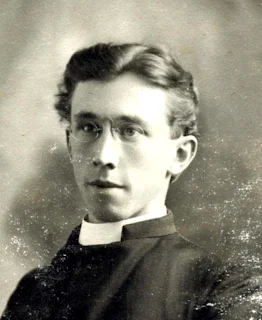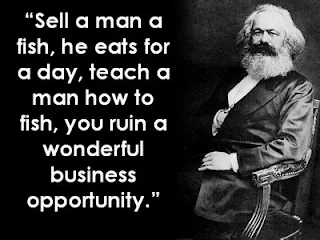 |
| Oh please, can we not do this? |
Ministers jokingly refer to the "rites of passage" function of our work as the "hatch, match, and dispatch department." It's a blithe way of filing events of emotion and mystery and great significance so we don't have to take our role in them too seriously, and avoid the crushing sense of responsibility that comes when people actually NEED us to AD-MINISTER these passages.
The hatch and the match can be "diarized" around other commitments, and are negotiable and non-urgent.
The dispatch, however, is nobody's poodle. It comes when it will and you need to be ready to drop things and just be there for the people in your charge. And, in cases like this one, where you know and love the departing, you have to wrestle your own grief and sadness and sense of impotence into a firm choke-hold, so that the engagement doesn't become all about you.
People most need religion, it seems, just like they most need poetry-- that is, when the usual order of life drops away, and the abyss is glimpsed.
For all the keyboard-jousting I've been doing, for all the libraries chock-full of theological texts I've been gorging on, for all the jumping-through-verbal-hoops I'm called to acrobat--what USE is any of it, in the face of what Phillip Larkin calls:
... the total emptiness forever,
The sure extinction that we travel to
And shall be lost in always. Not to be here,
Not to be anywhere,
And soon; nothing more terrible, nothing more true.
And how does a minister comfort one facing this without the customary blandishments of "God" or "Heaven" or "Eternal life"?
This is a special way of being afraid
No trick dispels. Religion used to try,
That vast moth-eaten musical brocade
Created to pretend we never die,
And specious stuff that says no rational being
Can fear a thing it cannot feel, not seeing
that this is what we fear - no sight, no sound,
No touch or taste or smell, nothing to think with,
Nothing to love or link with,
The anaesthetic from which none come round.
So, failing an appeal to child-like faith, can stoicism be any real comfort? Brave words, after all, are just words.
Most things may never happen: this one will,
And realisation of it rages out
In furnace fear when we are caught without
People or drink. Courage is no good:
It means not scaring others. Being brave
Lets no-one off the grave.
Death is no different whined at than withstood.
I see now that the month I spent at my dying father's bedside in 2003 changed me utterly and forever, and constituted a second puberty, a rite of passage, for me. For all the false hope and happy talk that went on around him that month, we all knew what was coming. He knew I did not share his bog-Irish Catholic faith, and to his credit he did not ask me to pray with him or for him, though I would have, and without a nano-second's hesitation, if I thought it might comfort him. But he knew me better, and this showed he loved me better than I loved him, and I loved him a lot.
In the end all I could do for him, as he drifted in and out of consciousness, was to be there, quietly witnessing ('with-nessing'), suffering it with him, in what I can only call 'solidarity'. In the end, words failed. Much of his conscious time, we just held each other's hand, and I can feel his calloused palm now in mine as I type this sentence.
If this is what is wanted, I can do this, and an age of theology cannot teach it. Solidarity with suffering has to be learned (what cannot be taught can still be learned) by bitter experience. It took me a month with a dying man I loved to move from false hope ("surely God will save him") to silent witness (Mary and Mary Magdelene weeping at the foot of the cross, powerless). That he was my father intensified the urgency, made me learn it quick.
What were they thinking, back in the day, when 20-something, fresh-faced young virginal males were the preferred ministerial livestock? What in that time could they have suffered? What could they have known about counselling, say, the bereft, or the couple locked for years in bitter marital strife? No wonder churches got a reputation for being staffed by irrelevant, dreamy, bookish bird-brains.
 |
| Butter could not melt in that mouth |
Every time I complain about how old I'm getting, I need to remember that if this work is worth doing, I actually NEED the aches, pains, losses, scars, and open wounds I carry from a half-century of living on this 'b*tch of an earth' (as Beckett put it). All the dark stuff we enshadow to make ourselves look so capable and invulnerable--the doubt, fear, and despair we keep constantly at bay--is precisely what gives us solidarity and communion with our fellow beings. It is easier to feel closer to someone like Larkin, who puts all this out there, tells his secret terror of death, than to someone like, say, Donald Trump, who has evidently never had a moment's self-doubt (even about that absurd comb-over of his).
 |
| Sir, your mortality is showing... |
In fact, now that I think of it, Trump's combed-over quiff is an excellent emblem of the armour of persona, the shiny shop-front we construct to meet the world that doesn't want to hear about our fears and failings and mutability. All such constructed selves are usually absurd, swept as they are over phrenologically lumpy underside writhing with demons of mortality and decay. As more hair falls out and the lumps begin to show, more hair spray, more elaborately concupiscent blow-waves are needed to hide the awful truth--and the construct gets stranger and stranger.
 |
| Such a natural look-one of the many faces of denial |
In an age of Berlusconi's hair-transplants (which he denies), Clooney's nip'n'tuck (which he admits), and washed-up rock-chicks' collagened lips (looking for all the world like a transplant from Nemo), we have never in human history been in greater denial of aging, and the only end of aging. There is nothing more mutable than the flesh, but you wouldn't know it. We seem to have lost the knack of aging gracefully, in full realisation and acceptance of the life cycle. Perhaps this is because no-one any longer believes in heaven, and the idea of fitting your INNER life for the next world seems pointless.
 |
| You can always tell the age from the hands, they say. |
If this is IS all there is, it's hard to argue with that ethic. But notwithstanding all the glossy surfaces, "to this end must we come" as Hamlet said, and the dying man I will sit with today is having to weigh all this--fear, faith, doubt, meaning, purpose--and in that grapple, it's good to have someone in your corner, ready with the water and the towel, a witness without words, to "ad-minister" some comfort.
The "ad" part means "to the other". Let me not forget that today.
 |
| Solidarity forever. |
Post-script: news today that my friend has passed away, Christmas morning. I had visited him two days earlier, and the fore-going was written around that visit.
In accordance with his wishes, I have been asked to conduct the memorial service. Past suffering now, he goes ahead to discover the great mystery. I will do my best for those of us who remain and will miss him.





























